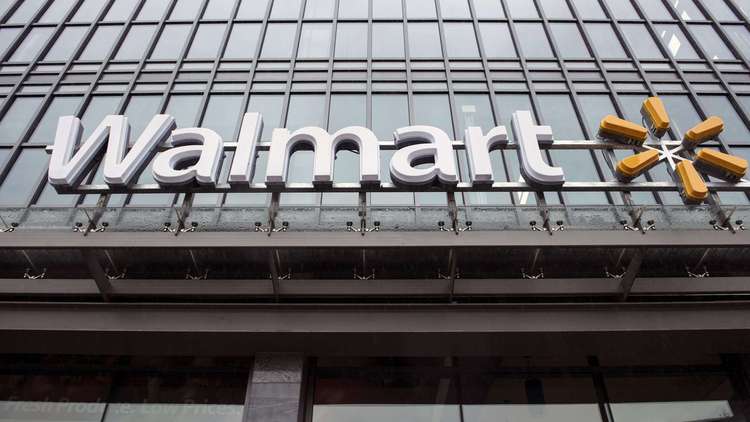
How Wal-Mart ‘Absolutely Shafted’ Washington, D.C., by Reneging on a Promise
Here's another example of the perils of trusting corporate promises, Wal-Mart edition.
Back in 2012, the huge retailer quelled civic opposition to allowing it into Washington, D.C., by promising to build two stores in the city's poorest neighborhoods to go with three stores it would build in more middle-class neighborhoods.
With the latter three stores already opened, Wal-Mart abruptly announced last week that it was scrapping plans for the other two. The neighborhoods to be left high and dry are in the city's Ward 7, which is 95% African American, with a median household income of $35,000.
January 22, 2016 | Source: Los Angeles Times | by Michael Hiltzik
Here’s another example of the perils of trusting corporate promises, Wal-Mart edition.
Back in 2012, the huge retailer quelled civic opposition to allowing it into Washington, D.C., by promising to build two stores in the city’s poorest neighborhoods to go with three stores it would build in more middle-class neighborhoods.
With the latter three stores already opened, Wal-Mart abruptly announced last week that it was scrapping plans for the other two. The neighborhoods to be left high and dry are in the city’s Ward 7, which is 95% African American, with a median household income of $35,000.
As is the case in many poor, minority neighborhoods, Ward 7 is underserved with food stores offering healthy options at reasonable prices. The expectation was that Wal-Mart’s arrival would relieve that condition.
Washington officials and residents are justifiably enraged. “We have absolutely been shafted,” former D.C. Mayor Vincent Gray, who negotiated the 2012 deal, told local broadcasters. “They think they can do this to us and we will roll over. I bet you Wal-Mart doesn’t do that everywhere.”
Wal-Mart places its decision to abandon inner-city Washington in the context of a worldwide pullback involving the closing of 269 stores, including 154 in the U.S. The three already launched in Washington will stay open. A company spokesman told the Washington Post that its expectations for the profitability of the new stores had been scaled back, and the first three stores, in trendier and gentrifying parts of the city, weren’t meeting expectations either. Wal-Mart spokesman Brian Nick told me that not a single one of the three existing D.C. stores is profitable; accordingly, “we’ve concluded opening two additional stores in the District is not viable.”
One City Council member said that in a closed-door meeting, a company official pointed to proposals to increase the city’s minimum wage, which could rise from $11.50 an hour to $15 if a ballot measure passes in November, as a condition that could make the D.C. plans even less viable. According to the Post, the company also objected to a proposal to require employers to pay into a family and medical leave fund for workers.
The most important factor in this episode may be that, despite the community’s expectations, Wal-Mart’s commitment to build two stores in Ward 7 was never absolute. Instead, as was stated in the “Community Partnership Initiative” that embodied the agreement with the city, it was “subject and contingent upon business conditions.” City officials glossed over that qualification in characterizing the deal as ironclad, but that was their error. Wal-Mart always knew it had an escape clause. Nor is there any doubt that for Wal-Mart, business conditions have changed, and not only in Washington.
Nick says the fact that stores in more promising parts of the city were built and opened before the Ward 7 stores is a product of happenstance; the company’s plan always was to build stores as the locations became ready, and the Ward 7 locations were delayed.
Still, Wal-Mart played its partnership initiative for all it was worth. The company got more from its pledge than merely permission to open stores in the city at a time when its corporate strategy involved expanding out of the suburbs into big cities. The company was also able to kill a 2013 “living wage” measure that would have required D.C. retailers to pay employees at least $12.50 an hour in wages and benefits, or 50% more than the then-minimum wage. Mayor Gray vetoed the measure in response to a threat from Wal-Mart to pare back its building plans.
The city bulldozed an entire neighborhood in Ward 7 to make way for Skyland Town Center, a $200-million complex that was to be anchored by Wal-Mart. City officials have said that they don’t have any other anchor prospects on their list, and the development is in question.
It’s unclear whether the city has any recourse against Wal-Mart for reneging on its deal, but things don’t look promising. The 2012 agreement wasn’t reduced to writing as an enforceable contract, and now that the first three stores have been built, the city’s leverage is limited. Wal-Mart will abandon the leases it signed for the two Ward 7 locations, but any price it pays for breaking the leases won’t come near to making up for the loss of jobs and shopping opportunities caused by their abandonment.
